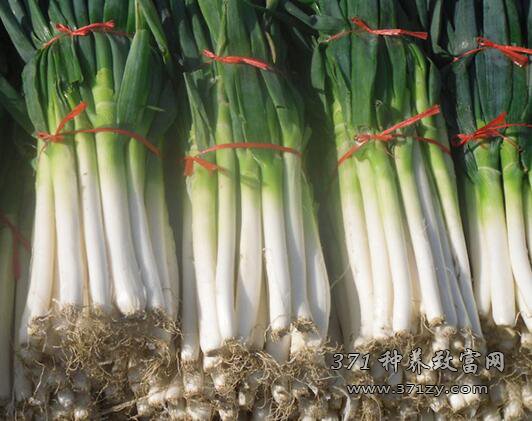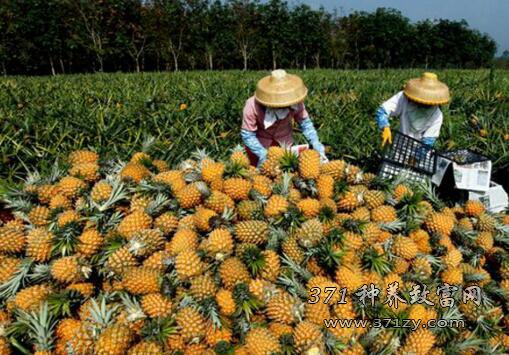How much is a jin of green onions? Analysis and Forecast of Welsh Onion Price Market in 2017

Price Forecast of Green Onion in 2017
There was a big gap in the price of green onions between the second half of last year and the second half of last year, with prices as high as 7.1 yuan / kg in the first half of the year. The price remained depressed in the second half of the year, reaching as low as 0.44 yuan / kg; after entering December, the price rose again, and by December 31, the price had risen to 1.6 yuan / kg. The reduction of planting area and the reduction of production of scallions in Fujian are the reasons why the price of green onions remained high in the first half of the year. Since the second half of the year, the planting area of green onions has increased significantly, with an average increase of more than 30%. The market for green onions rapidly turned to oversupply, and the price gradually went down. and it has been maintained at a low position from July to October, and growers continue to lose money from July to November.
Fujian green onions listed this spring are still facing reduced production due to the typhoon in November 2016, so the price of green onions is expected to rebound in the spring of 2017, but the overall price is not expected to reach the height of the same period in 2016. (the above analysis is for reference only)
Planting technique of Welsh Onion
Time arrangement of seedling raising and planting
In the first crop, seedlings were raised from the end of June to early July, planted in September, and listed in March to April in the second year; in the second crop, seedlings were raised in mid-September, planted in March to April in the second year, and listed in August to early September.
Seedling site selection
Because the seedling raising time of the two crops is almost in the rainy season, we should choose the land where the land is flat, the terrain is slightly higher, the land can be irrigated by drought and waterlogging, and there are no lily vegetables such as onion, onion, leek and garlic for more than 3 years.
Intensive ploughing and raking, ridging and bedding
In order to prevent underground pests from harming seedlings, poison bait should be applied again after the organic fertilizer is spread. That is, stir-fry yellow with 5 kilograms of wheat per mu, then mix well with 250 ml phoxim diluent, cover tightly for 3 hours, spread the ground, turn into the soil with organic fertilizer, and kill a variety of underground pests at one time.
After ploughing, it is necessary to fully rake fine, firm and flat. Before making a bed, open a ridge for watering on one side of the ground, and then make the bed. The width of the border is 1 to 1.2 meters, the width of the border is 20 to 23 centimeters, and the height is 8 to 10 centimeters. After the border is done, sprinkle compound fertilizer (15-15-15) 2540 kg per mu in the border.
Cuddle species
Sow the seeds evenly on the flat border surface, and then hold them carefully with a rake, so that the seeds are fully mixed with the soil, and buried shallowly in the soil, and then watered.
Cover seed: after leveling the border, clear out the fine wet soil 1 cm thick with a shovel, and flatten the border surface again.
Watering
Stop watering when the water in the bed reaches 6cm to 7cm deep. The border surface is sown after the clear water is dried and covered with fine soil with a thickness of about 1 cm. The seedlings sown with cover have deep roots, many roots, drought tolerance and strong seedlings. After sowing, artificial operation can be carried out to spray herbicides while moisture is used.
Seedling stage management
During the period from full seedling to 5 leaves, the distance between seedlings is 1-1.5 cm. Combine seedlings to pull out weeds that have not been killed by herbicides. Control watering, no drought, no watering, in order to reduce the incidence of "incidence" and "etiolated seedlings". If the seedling growth is thin and weak, it can be combined with watering and topdressing properly. 7.5kg / mu of urea was applied with water, once every 20 days, for a total of 2 times. If continuous overcast and rainy weather occurs during the growth period, attention should be paid to the prevention and control of downy mildew and white blight to ensure strong seedlings.
Timely planting
Spring onions sown in summer were planted in the first and middle of September, and spring onions in autumn were planted in March to April of the following year. Row spacing 80 cm, plant spacing 1.5-2 cm, trenching and planting (arranging onions). The onion seedlings were strictly graded before planting, and then treated with chemicals to eliminate root maggots (seed fly larvae) and ensure the whole seedling.
The specific method is to soak the roots of onion seedlings in 1.8% chlorhexidine solution diluted 4000 times, or phoxim solution diluted 800 times to 1000 times, or cypermethrin solution diluted 3000 times for 2 minutes.
The planting ditch should not be too deep or too shallow, and the dead soil layer is not conducive to root growth; it is more difficult to cultivate soil after it is too shallow. After the planting ditch is opened, the newly turned up empty soil should be slightly suppressed to prevent landslides from overcoming green onion seedlings.
Proper amount of root pressing fertilizer should be applied after the green onion seedlings are arranged in the ditch. Root fertilizer is better with rotten barnyard manure, 5000 kg per mu plus 25 kg compound fertilizer is applied. Combined with the opening of the lower ditch, the root fertilizer is properly covered with a layer of fine wet soil. Thickness to the root fertilizer and soil do not bury the green onion core (growth point) for the degree, a little suppression can be. Watering of newly planted onion seedlings is strictly prohibited to prevent retting roots from causing a large number of dead seedlings.
Field management
1. After the green onion is planted, the positive temperature is the most suitable for the growth of green onion.
Fertilizer and water management is an important link of high yield and high quality. If you apply enough root fertilizer according to the requirements, there will be no shortage of fertilizer before the middle stage of growth, as long as the soil moisture is suitable, you can ensure rapid and healthy growth. The soil temperature should be kept at about 70% of the saturated water holding capacity. Drought is watering, and timely ploughing and loosening soil after watering, in order to preserve soil moisture and increase soil permeability, promote root development, and improve the ability of absorbing water and fertilizer.
two。 The length of green onion is determined by how much soil is cultivated.
In general, out-of-season green onions need to be cultivated 3 times for 4 times in order to ensure that the length of green onions reaches 70 to 80 centimeters. The thickness of each soil cultivation is not buried in the green onion heart as the standard. The out-of-season spring onions cultivated over the winter should cultivate the soil thickly before freezing to reduce the dry and withered leaves as much as possible, accumulate nutrients and ensure early emergence after winter. With the acceleration of growth rate and the increase of leaf quantity, the demand of plants for soil nutrition increases sharply. In order to ensure high yield, topdressing must be done in time.
3. Topdressing can be combined with watering.
- Prev

The unsalable price of pineapple in Wanning, Hainan is low, and it is difficult for growers to make money with a pineapple income of 2000 yuan per mu.
The unsalable price of pineapple in Wanning, Hainan is low, and it is difficult for growers to make money with a pineapple income of 2000 yuan per mu.
- Next

What crops do you grow to make money in 2017? Price Analysis of Potato, Mung Bean, Peanut and silage Corn
What crops do you grow to make money in 2017? Price Analysis of Potato, Mung Bean, Peanut and silage Corn
Related
- A course of planting techniques and methods on how to grow carrots
- How to plant the latest tulips?
- Is it better to pick tea in the morning or in the afternoon? When is the best time for tea to be picked? what is the third or fifth tea?
- Launch Yuanxiao Happy combination Haocha + Tea Yuan healthy Taste
- Penghu Tourism "Fireworks 20 Parade with You"
- 2022 West Lake Happiness holds "Digital Revitalization Voucher" and draws iphone13 and laptop.
- Banqiao Fuzhou social houses are designed to change start-up combined with police elimination to create a safe and livable environment
- The convenient measure of "mechanical weeding" in Xinbei has been abused and the Agriculture Bureau has imposed heavy penalties on the illegal land consolidation.
- Changgeng University Joins Hands with Four Memory Factories to Rescue Memory Talent Shortage
- The list of Taiwan's top 100 MVP managers is listed by the Director-General of the Farmers' Association of Sanxia District.

